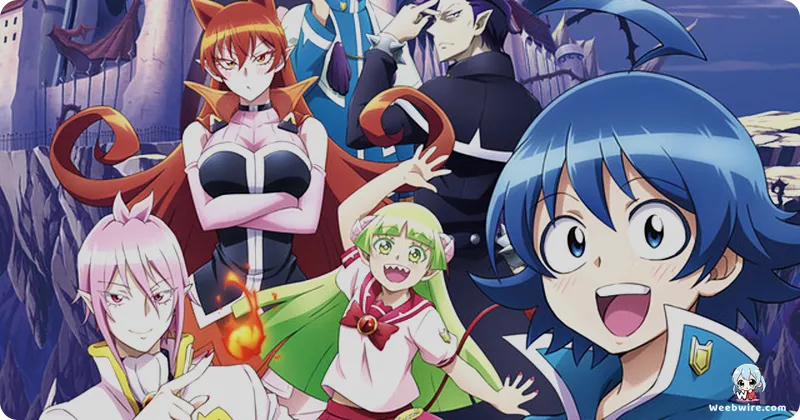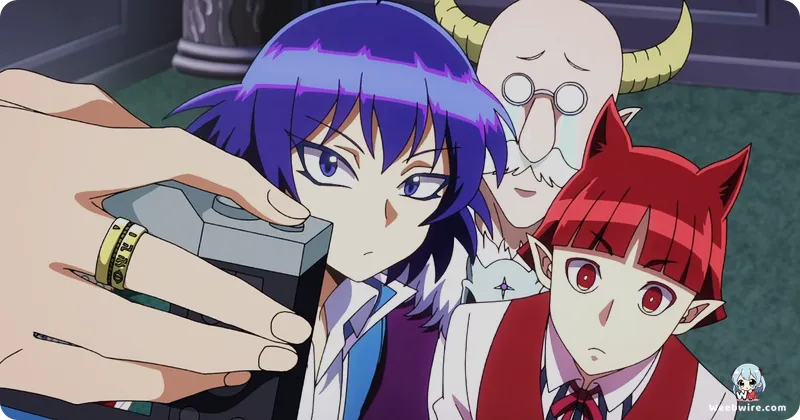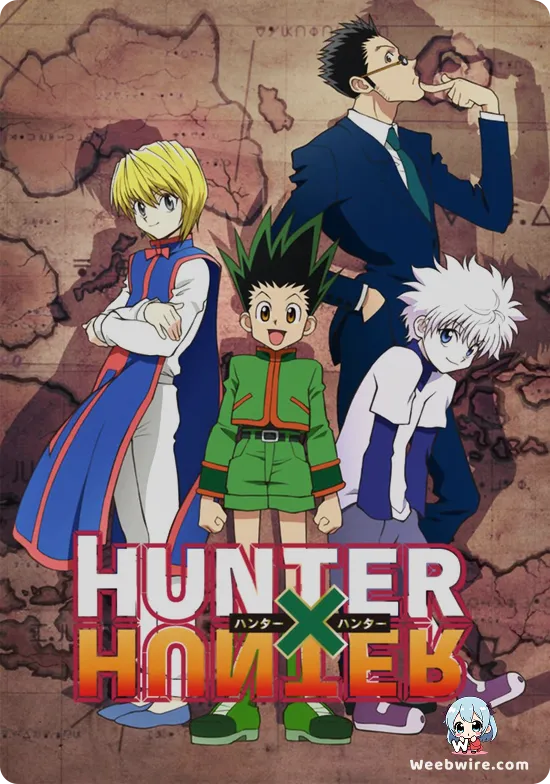The Unseen Depths of Babyls: 'Welcome to Demon School! Iruma-kun' Continues to Enchant with Unique Storytelling and Stellar Season 2

Welcome to Demon School! Iruma-kun has firmly established itself as a standout series in the vibrant world of anime. It captivates audiences with its refreshingly unconventional blend of comedy, fantasy, and heartwarming character narratives. Far from a typical tale of the underworld, this acclaimed show introduces viewers to Iruma Suzuki, a human boy unexpectedly thrust into a demon realm after being sold to a demon, only to find himself enrolled in Babyls Demon School. While its core premise is widely known, the series, particularly its critically lauded second season, boasts numerous delightful nuances and intriguing details that contribute to its profound appeal.
Subverting Demon Lore and World-Building
One of the most compelling facets of Welcome to Demon School! Iruma-kun is its ingenious subversion of traditional demon lore. Instead of a sinister and terrifying landscape, the demon world of Babyls is depicted with an astonishingly vibrant, bureaucratic, and even mundane charm. Here, demons, despite their immense power, navigate complex societal structures, attend schools, and grapple with surprisingly relatable everyday problems. This rich world-building provides an ideal comedic backdrop for Iruma's extraordinary adventures and extends to its beloved characters, from the spirited Asmodeus Alice to the delightfully eccentric Clara Valac, whose formidable powers are often matched by their endearing personalities.
Iruma's Unique Character and Growth
A key element lies in Iruma's seemingly ordinary yet profoundly extraordinary character. Unlike many shonen protagonists who rely on innate powers or sudden abilities, Iruma's primary 'skill' is his overwhelming kindness and an almost supernatural knack for avoiding peril. This isn't merely a narrative convenience; it's a foundational aspect of his identity, shaping every interaction. His signature 'crisis evasion' magic, which allows him to instinctively dodge attacks, directly manifests from a lifetime of navigating precarious situations due to his neglectful upbringing. This unique trait frequently fuels comedic moments while simultaneously underscoring his deeply ingrained self-preservation instincts.

The series further distinguishes itself through its fascinating character arcs, moving beyond simplistic power-ups. A prime example is the intriguing 'Evil Cycle,' a temporary state where a demon's personality undergoes a dramatic shift, often becoming more assertive or mischievous. When Iruma experiences his own 'Evil Cycle' in the second season, it transcends mere comedic transformation. This pivotal arc allows him to tap into hidden desires and assert himself in ways he typically wouldn't, beautifully showcasing his latent potential for leadership and cunning—qualities often overshadowed by his inherent good nature. It's a testament to the series' clever writing that even a temporary personality shift serves to deepen a character rather than solely providing a laugh.
Animation, Music, and Heartfelt Dynamics
Behind the captivating narrative, Bandai Namco Pictures has earned widespread acclaim for its vibrant animation and unwavering faithfulness in adapting Osamu Nishi's original manga. The studio's dedication to capturing the manga's distinctive art style and impeccable comedic timing is evident in every frame. From the fluid action sequences during the school's various challenges to the exaggerated facial expressions that punctuate humorous beats, the animation consistently elevates the source material. The character designs, in particular, stand out, retaining the manga's unique charm while dynamically bringing to life each demon's distinctive features, including horns, tails, and wings.
Complementing the visual storytelling, the series makes clever use of music. The opening and ending themes are often quirky and memorable, perfectly encapsulating the anime's lighthearted yet adventurous spirit. Furthermore, the background music frequently employs playful and whimsical tunes that skillfully enhance both comedic moments and heartfelt scenes, crafting an immersive auditory experience. This meticulous attention to sound design is vital for a series that heavily relies on its unique, charming atmosphere.
The heartwarming dynamic between Iruma and his adoptive demon grandfather, Sullivan, forms another cornerstone of the series' enduring charm. Sullivan, the esteemed chairman of Babyls Demon School, dotes on Iruma with an almost obsessive affection, providing both essential comedic relief and genuine emotional depth. Their relationship beautifully explores profound themes of family, belonging, and unconditional love—a surprising yet welcome addition to a show set in a demon world. Sullivan's unwavering support and profound belief in Iruma are instrumental in the human boy's personal growth and his gradual, heartfelt acceptance of his new life among demons.
Overwhelming Fan Reception
Fan reception for Welcome to Demon School! Iruma-kun has been overwhelmingly positive, particularly praised for its ability to maintain a consistent tone of lighthearted fun while seamlessly integrating meaningful character arcs. Viewers frequently laud its wholesome nature, offering a refreshing alternative to more intense fantasy series. The anime's success in creating a diverse ensemble of memorable characters, each boasting unique quirks and backstories, ensures continuous engagement. The series wisely avoids cheap gags, instead deriving its humor from rich character interactions and the inherent absurdity of Iruma's extraordinary situation, making it consistently captivating.
In essence, Welcome to Demon School! Iruma-kun transcends the typical fantasy-comedy genre. It stands as a meticulously crafted narrative that thrives on its truly unique premise, endearing characters, and a surprising depth underlying its humorous exterior. The series offers a delightful escape into a demon world that is far from menacing, inviting viewers to embrace the unexpected and discover joy in the most unusual circumstances, thereby solidifying its status as a beloved and enduring title among anime enthusiasts.
Credits
Welcome to Demon School! Iruma-kun Season 2
Author
Osamu Nishi
Cover Art
Osamu Nishi
Studio
Bandai Namco Pictures
Publisher
Akita Shoten
Producers





